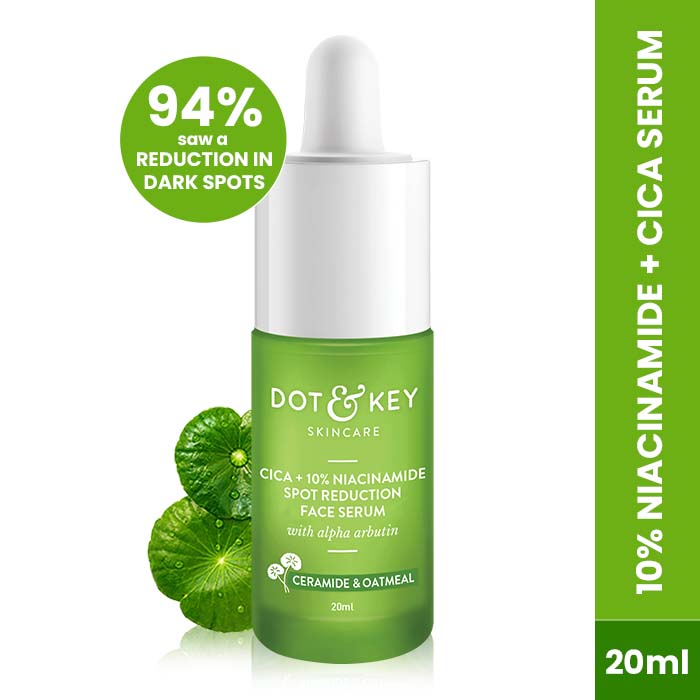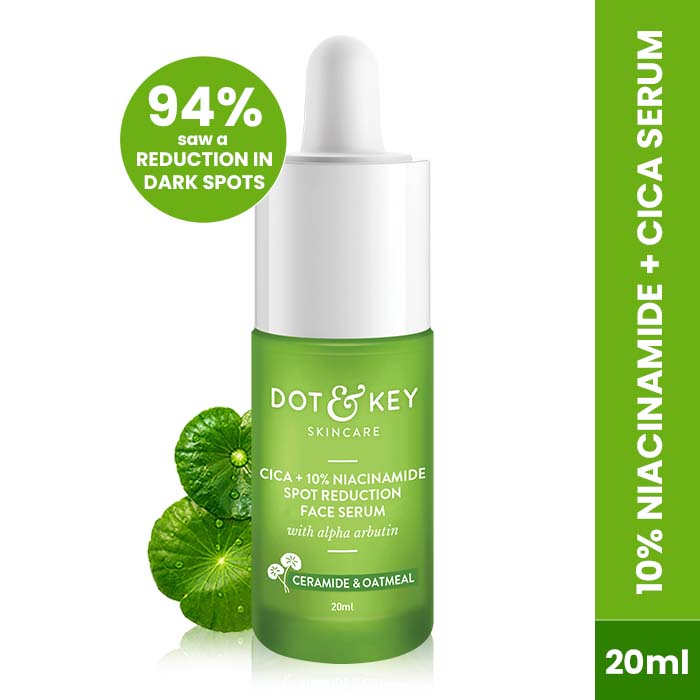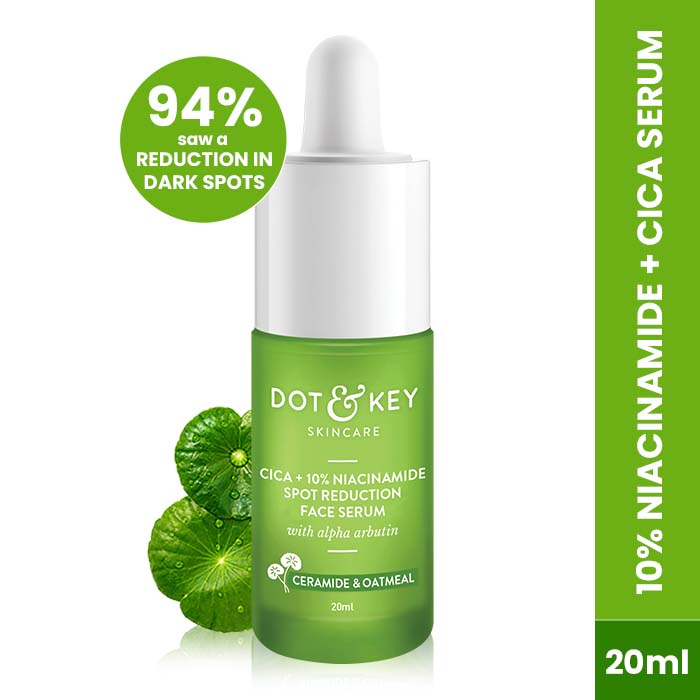
Highlights
WHAT IS IT?
Face serum with 10% Niacinamide and Cica
FEATURES
Quick-absorbing, Non-sticky, Transparent fluid, Lightweight
BEST FOR
oily
CHECKS
Oil-free, Paraben-free, Chemical-free
Who Is It For?
All Ages Suitable For All GendersWhat Does It Help With?
Acne Dark Spots Pore Reduction Blemishes Skin IrritationBudget
Affordable (under $30)How To Use
Which routine should it be used in?
Instructions:
Key Information










What Nykaa E retail limited Says
Product Description:
A spot reduction face serum with 10% Niacinamide and Cica for treating irritation and unclogging pores
About the Brand:
Ingredients Overview
Ingredients List
Aqua, Niacinamide, Propanediol, 1,3-Butylene Glycol, Glycerine, Ethoxydiglycol, Alpha Arbutin, Centella Asiatica (Cica) Leaf Extract, Disodium EDTA, Allantoin, Sodium Gluconate, Polyacrylate Crosspolymer-6, Hydroxyethyl- cellulose, Sodium Hyaluronate, Laminaria Digitata Extract (and) Hydrogenated Lecithin (and) Cetyl-PG Hydroxyethyl Palmita- mide (and) Ceramide 1,2,3,4,6|| (and) Cholesterol (and) 1,2-hexanediol, Avena Sativa (Oat) Meal Extract, Glycyrrhiza Glabra (Licorice) Root Extract, Benzyl Alcohol [and] Ethylhexyl- glycerin (and) Tocopherol
Key Ingredients
Niacinamide, Cica (Centella Asiatica)
Ingredients Details
Allantoin
Alpha Arbutin
Disodium Edta
Ethoxydiglycol



